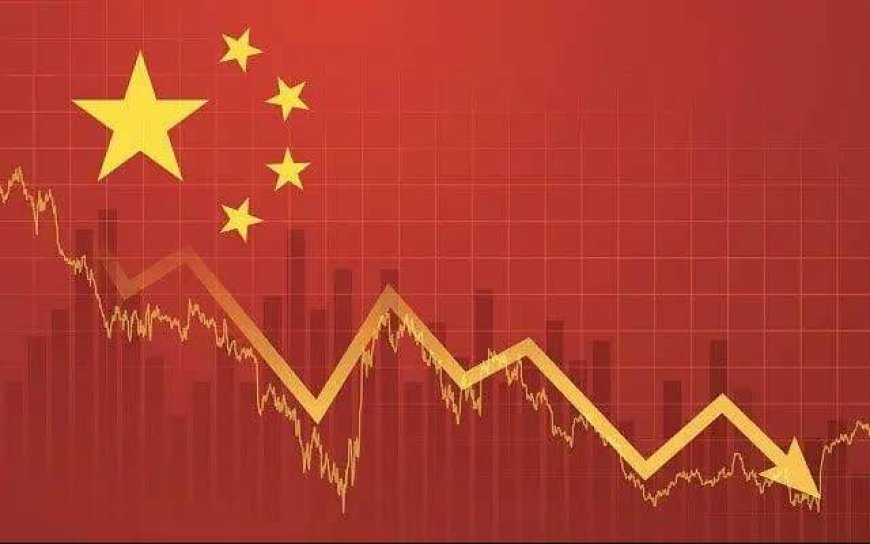China's New Economic Odysseus: A Tale of Resilience
The intricate tapestry of China's economy, once hailed as a burgeoning powerhouse on the global stage, is now facing tumultuous tides that threaten to disrupt its trajectory. Over the past two decades, China's economic prowess has reverberated across the world, enticing foreign investors to flock to its shores in pursuit of prosperity. The dawn of 2014 witnessed a pivotal moment as foreign investors gained direct access to Chinese stocks through Hong Kong, catalyzing a surge in foreign portfolio investments, underpinned by a welcoming stance from the Chinese government towards economic collaboration. However, recent weeks have unfurled a series of disconcerting revelations that have cast a shadow of uncertainty over China's economic landscape, prompting speculation of an impending crisis that could reverberate globally.

Stock Market Turmoil and Presidential Interventions
Reports emanating from the financial trenches depict a stark divergence in fortunes between the American S&P 500 index, soaring to unprecedented heights, and the somber hues adorning the Chinese stock market, mirroring the nation's flag. Shockwaves rippled through the markets of China and Hong Kong, culminating in a staggering loss exceeding $1.5 trillion in January alone. The severity of this downturn was underscored by the unprecedented intervention of Chinese President Xi Jinping on February 6, followed by the dismissal of Yi Huiman, the head of China Securities, signaling a tumultuous chapter in China's financial narrative.
Ebbing Economic Dominance and Looming Contractions
In a seismic shift, China's ascent as an economic juggernaut has encountered a precipitous reversal, as its share of the global economy dwindled from 18.4 percent in 2021 to 17 percent in 2023, marking a substantial 1.4 percent decline over a two-year epoch, the most substantial downturn since the 1960s. Moreover, China's nominal GDP is poised to witness a rare contraction in 2023, marking the first instance of such an occurrence since the tumultuous devaluation of the yuan in 1994, emblematic of the profound recalibration underway within China's economic echelons.
The Quagmire of Real Estate and Structural Strain
The real estate sector, a stalwart pillar underpinning China's economic edifice, has been ensnared in a protracted crisis that unfolded over two years ago, precipitated by stringent governmental measures targeting developer borrowing. This confluence of events has catalyzed one of the most egregious housing crises in recent memory, with the central bank's data from 2020 revealing that housing assets constituted a staggering 70% of household wealth, accentuating the sector's pivotal role in China's economic matrix. Western pundits and policymakers view this crisis as emblematic of systemic fragilities within China's economic governance, casting a pall of uncertainty over the nation's economic trajectory.
Navigating Contradictory Economic Waters
Despite the exodus of over $140 billion in long-term investments from China by September 2023, equivalent to approximately one percent of the nation's GDP, China's economy exhibited a growth rate of 5.2% last year. While this growth rate pales in comparison to previous decades, excluding the tumultuous years marred by the ravages of the COVID-19 pandemic, it surpassed projections and outstripped the growth rate recorded in 2022, underscoring the enigmatic resilience embedded within China's economic fabric.
Pondering the Precarious Future
A retrospective examination of China's economic annals unveils a recurring motif of near-cataclysmic junctures, such as the tumultuous events of Tiananmen Square in 1989, the Asian financial crisis of 1998, the global financial upheaval of 2008, and the yuan devaluation in 2015. At each inflection point, Western prognosticators prophesied the impending demise of China's economy, only to be confounded by the nation's tenacious resilience. Bloomberg posits that China possesses the fortitude to surmount the prevailing crisis, drawing parallels to past triumphs over adversity. Embarking on a quest for alternative avenues of economic growth beyond the beleaguered housing sector, China's burgeoning prowess in the realm of electric vehicle production heralds a potential renaissance, with burgeoning sales in global markets, particularly in Europe, portending a seismic shift that could position China as the preeminent global exporter of automobiles, potentially eclipsing Japan's storied dominance.
As China stands at the crossroads of economic uncertainty, the unfolding saga of its economic evolution encapsulates a tale of resilience, recalibration, and the indomitable spirit that has defined its ascent on the global stage. The confluence of challenges and opportunities beckons a new chapter in China's economic odyssey, one fraught with perils yet pregnant with possibilities, awaiting the deft navigation of policymakers and stakeholders to steer the nation towards a prosperous horizon.












































